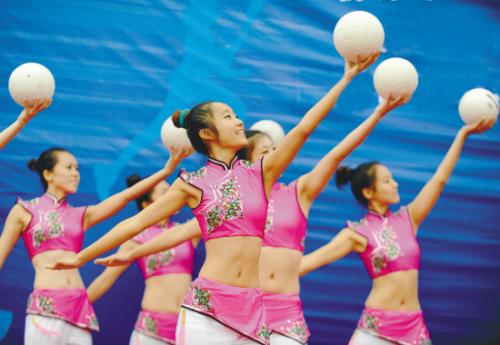Official promotion prospects drive medal mania at National Games
- By Mark Dreyer
 0 Comment(s)
0 Comment(s) Print
Print E-mail China.org.cn, September 26, 2013
E-mail China.org.cn, September 26, 2013
At this year's China's National Games, held up in Shenyang in Liaoning province in the northeast of the country, the focus was all about the medals and, unfortunately, that end was used to justify the means. Biased refereeing, judging favoritism, the trading of athletes - these are all considered fair game in the quest to get as many shiny pieces of metal as possible for a particular province. But at what cost?
|
|
|
This year's China's National Games was held up in Shenyang in Liaoning province in the northeast of the country. [File photo] |
The National Games should be about sporting excellence, a competition in which regionalism replaces nationalism, but all in the name of patriotism. It should be about doing China proud, but on a purely domestic stage, a place where the current stars of the national team stars get the a chance to compete against - rather than with - each other, and where national team hopefuls get the chance to stake their claim for a place on Team China by beating the veterans when it counts.
But if the integrity of that competition is compromised, then the Games will quickly descend into a downward spiral: the public will lose faith in the competition, and then lose interest, and the achievements of the athletes will be rendered meaningless.
The trading of athletes between provinces is the quickest way to lose that sense of regional pride. Two-time Olympic boxing champion Zou Shiming hails from Guizhou province, but at the 11th National Games in Shandong four years ago, he was effectively traded to Shanghai, a municipality with the money to cover Zou's training costs and, in return, bask in his glory. When Zou won gold, half of the medal was credited to Guizhou and the other half to Shanghai, a situation so ridiculous that steps were taken to make sure it never happened again.







Go to Forum >>0 Comment(s)